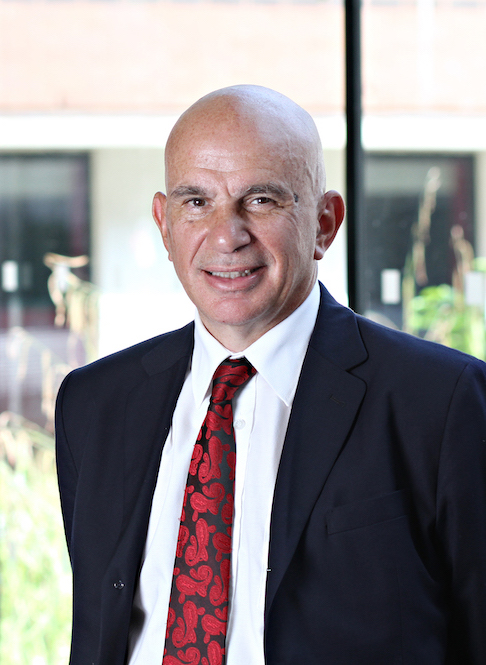Sponsored content
The pursuit of professional doctoral study offers a multitude of benefits that extend beyond the individual and can have a significant impact on society, organisations and the academic community. Here, Dr Geoff Parkes, associate professor of marketing and strategy at Aston Business School and director of the DBA programme, shares his own views on the advantages of professional doctoral programmes, emphasising their contribution to personal and career development, the advancement of knowledge and the broader social context
In addition to the Doctor of Business Administration, professional doctoral study can also encompass programmes such as the Doctor of Education (EdD) or Doctor of Nursing Practice (DNP) for example. For practitioners, these qualifications stand as a powerful catalyst for personal and career development and provide opportunities for individuals to deepen their expertise, enhance their skills and refine their competencies in a specialised field.
In my own case, I ran a commercial finance consultancy while studying for my DBA. This not only gave me the opportunity to access several firms that formed part of my data collection exercise, but when I graduated, I gained credibility in terms of my competitors by demonstrating a deeper understanding of financial markets – the topic of my doctorate.
For DBAs in a business context, doctoral study provides for expertise enhancement, offering the chance to facilitate in-depth exploration of a specific subject area, allowing individuals to become experts in their chosen field. This knowledge can be directly applied to real-world challenges, making graduates invaluable assets to their organisations or professions. In short, the opportunity to monetise academic endeavour in practice.
I started my DBA soon after the 2008 financial crash – a serious destabilisation for small firms seeking access to finance. My research question centred around individual entrepreneurs and business owners, their personalities and behavioural characteristics. Given the market hubris and credit rationing, I wondered what difference could they make in successfully accessing finance.
It’s a tip I give to new Aston DBA students – in selecting your research question, it’s useful to take Professor Andrew Pettigrew’s advice from his 1990 study on longitudinal field research: “Always look for social dramas”. It’s always much more interesting to look at aspects of business that are experiencing real change.
Highlighting critical thinking and problem-solving skills
Professional doctoral studies also emphasise critical thinking and problem-solving skills, which are becoming more essential in various professional roles. Increasingly, business professionals are faced with a complex and changing macro-economic environment and DBA graduates are equipped with the ability to analyse complex issues, develop innovative solutions and make informed decisions.
The impact of blockchain and AI for example on supply chains in manufacturing business is an example of the type of in-depth study suitable for doctoral research. After I graduated, I undertook several non-executive director appointments, which on reflection was in part down to my newly acquired doctoral skills in analysing the real causes of those macro and micro economic changes a firm can be faced with and through which it will need to navigate.
Of course, DBAs provide the opportunity for career advancement. A professional doctorate often opens doors to high-level positions, leadership roles and increased earning potential. Employers value the advanced knowledge and skills that doctoral graduates bring to the workplace. It also enables more professional networking. You join an exclusive doctoral club and this robust professional network can lead to collaborations, partnerships and access to valuable resources.
It’s also impossible to underestimate the sense of personal growth obtained by the individual executive on completing doctoral studies. It is a significant personal achievement that instils confidence, resilience and a strong work ethic. It encourages self-discipline and time management, fostering personal growth and adaptability.
In my own case I had been a visiting lecturer at Aston Business School for some time, primarily in a teaching role, describing my business experience to students in a theoretical context in the classroom. My DBA gave me the opportunity to start to look at research projects in the university both with UK SMEs and also worldwide, in Asia particularly. I chose to become a full-time academic and realised a personal ambition to live in Asia when I accepted the appointment in 2018 as pro-vice chancellor international, based in Hong Kong.
The advancement of knowledge
However, the benefit of professional doctoral study extends beyond individual growth and development. These programmes contribute significantly to the advancement of knowledge and scholarship in various fields. Doctoral students engage in original research, producing valuable insights and knowledge that contribute to the academic community and society at large. Their research can address pressing issues and generate innovative solutions.
The research output can often include published work in academic and professional journals, conference proceedings and other platforms, making their findings accessible to a wide audience. This dissemination of knowledge can lead to further research and advancements in the field.
“Get used to writing” is another piece of advice that I give to all DBA students – ultimately, this is a test via a doctoral thesis of around 60,000 words, plus a viva voce. You must be able to articulate your argument in words and defend it in front of an examiner. In my five years of doctoral study, I published four conference papers at the annual Institute of Small Business and Entrepreneurship (ISBE) conference. This was a real asset when I came to writing up my own thesis because I had already 25,000 published words as a basis from which to work.
Many doctoral graduates also go on to become educators and mentors, passing on their expertise and knowledge to the next generation of professionals. This also includes more portfolio working as they build a more diverse and stimulating field of endeavour. This cascading effect of knowledge transfer is a critical element of the academic ecosystem. It happened in my own case: I am now an associate professor at a leading business school, a private sector consultant and a non-executive director.
But central to a DBA is the requirement to contribute something new – an aspect of theory or modelling behaviour that creates new knowledge. The research conducted in professional doctoral programmes often has direct applications in various industries. It can lead to the development of new technologies, processes, or policies that improve the quality of life and drive economic growth. Doctoral programmes also encourage collaboration across disciplines, fostering a diverse and holistic approach to problem-solving.
This interdisciplinary perspective can lead to breakthroughs that might not have been possible in a more specialised context. DBA studies have looked at data analytics and the development of customer relationship management systems for example, facilitated jointly b IT, systems and marketing professionals. I combined good practice in HR and psychology and extended this into decision-making and how different entrepreneurs behave under pressurised market conditions.
Looking at the wider social context
Professional doctoral programmes can also have a significant impact on the broader social context. Increasingly Doctoral research often tackles pressing societal challenges, such as healthcare disparities, environmental sustainability and educational equity. The insights and solutions generated through these programmes have the potential to address these issues effectively.
Within a wider academic and professional team, doctoral graduates may influence government policy development through their research findings and expertise. They can advocate for evidence-based policies and contribute to the improvement of social, economic and environmental conditions. Many doctoral programmes emphasise community engagement and service learning. Graduates often work on projects that directly benefit local communities, creating a positive social impact.
Corporate Social Responsibility (CSR) is increasingly in focus in doctoral studies as research investigates the commercial impact of more advocacy of ethical business practices and thereby influences corporate policies that prioritise social and environmental responsibility. In my time studying and leading the DBA programme at Aston University, I have seen several successful DBA research projects on gender, ageing, ethnicity and many other topics of real relevance to society today.
There can also be a global perspective as this type of in-depth research contributes to the international body of knowledge and helps address global challenges, such as climate change, public health crises and economic disparities.
For the individual DBA graduate, the completion of their studies provides the chance of leadership and advocacy; in some cases they are able to advocate for positive change and social justice.
In conclusion, professional doctoral study offers a rich tapestry of benefits, encompassing personal and career development, the advancement of knowledge and being in a position to contribute to the broader social context. These programmes empower individuals to become experts in their fields, critical thinkers and innovative problem-solvers.
Dr Geoff Parkes is DBA programme director and associate professor in marketing and strategy at Aston Business School, Aston University. Following a career in industry, he graduated with a DBA in 2015
Discover Aston University’s online Executive DBA programme
Aston University is a public research university situated in Birmingham, England. In 2020, Aston University was named ‘University of the Year’ by the Guardian and ‘Outstanding Entrepreneurial University’ in the Times Higher Education Awards. Aston was also shortlisted for ‘University of the Year’ in the Times Higher Education Awards 2021
This article is sponsored by Aston University





